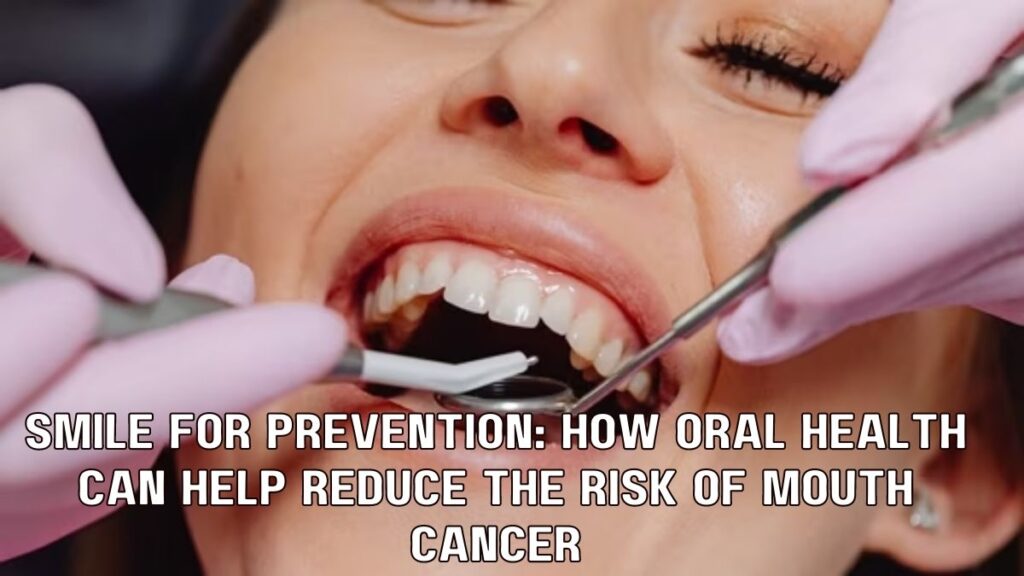Introduction
Your smile is a reflection of your overall well-being, and taking care of your oral health goes beyond just maintaining pearly whites. Oral health is closely linked to your overall health, and it plays a crucial role in preventing various conditions, including mouth cancer. In this blog, we’ll explore the strong connection between oral health and mouth cancer risk, and discover how simple oral hygiene practices can make a significant difference in reducing this silent threat.
The Oral Health-Mouth Cancer Connection
Mouth cancer often starts as minor changes in the oral tissues, and it can be influenced by several factors. While not all cases can be prevented, maintaining good oral health can significantly lower the risk of developing this disease. A healthy mouth is not only a sign of good hygiene but also a shield against potential dangers like mouth cancer.
Oral Health Practices for Mouth Cancer Prevention
- Brushing and Flossing: The foundation of good oral health begins with regular brushing and flossing. Brush your teeth twice a day using fluoride toothpaste and floss daily to remove plaque and food particles that can contribute to oral issues.
- Healthy Diet: A diet rich in fruits, vegetables, whole grains, lean proteins, and dairy products provides essential nutrients that help strengthen your immune system and protect against cell damage. Avoid excessive sugar and processed foods that can promote bacterial growth.
- Limit Alcohol and Tobacco: Heavy alcohol consumption and tobacco use, whether smoked or chewed, are leading risk factors for mouth cancer. Quitting or reducing these habits can drastically decrease your chances of developing the disease.
- Sun Protection: If you spend a lot of time outdoors, protect your lips from excessive sun exposure by using lip balm with sunblock. Lips are susceptible to skin cancer, including lip cancer.
- Regular Dental Check-ups: Routine dental visits not only keep your teeth clean but also enable your dentist to monitor your oral health and catch any potential issues, including signs of mouth cancer, in their early stages.
- Self-Examinations: Familiarize yourself with your mouth’s normal appearance so that you can quickly identify any changes. Regularly check for sores, patches, lumps, or any other unusual symptoms.
- HPV Vaccination: The HPV vaccine can protect against certain strains of the virus that increase the risk of mouth and throat cancers. Consult your healthcare provider about whether this vaccine is suitable for you.
- Stay Hydrated: Drinking plenty of water helps maintain saliva production, which is crucial for oral health. Saliva helps neutralize acids, wash away debris, and prevent dry mouth, reducing the risk of infections.
Conclusion
Your oral health is a fundamental part of your overall health, and it plays a vital role in minimizing the risk of mouth cancer. By adopting a holistic approach to oral care, incorporating healthy habits, and being mindful of potential risk factors, you can significantly contribute to preventing this silent threat. Remember, a beautiful smile is more than just aesthetics – it’s a reflection of your commitment to well-being and a safeguard against various health challenges, including mouth cancer. So, smile for prevention and take charge of your oral health today.

